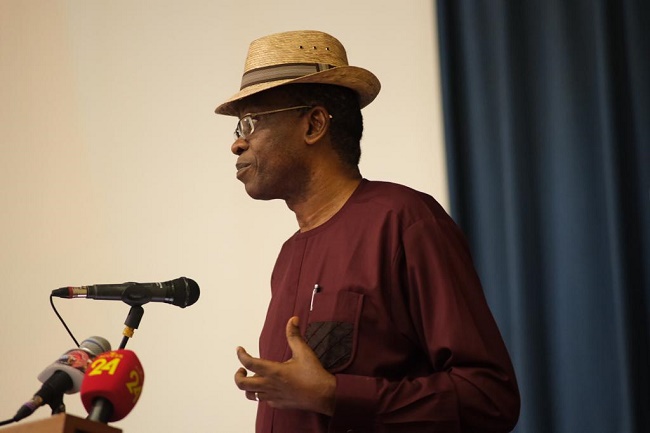Welcome words by Nnimmo Bassey at HOMEF’s Food Festival held in Benin City on Tuesday, November 26, 2024
Food plays a critical role in the life of any community or nation. Food is at the centre of our cultures. Agricultural and food systems generate songs, dances, drama and other art forms that moderate the pulse of any community. Agricultural and food systems drive economies, identities and spirituality.

Centre of origin of certain crop varieties simply highlight locations where Nature places those particular crops, for instance. Such crops are climate smart through years of adaptation to those locations. The foods they yield are prepared in particular ways based on the social realities and the preferences of the people. The mode of preparation and presentation are markets of cultural identities tied to the taste buds of the people.
There has been a distancing of our people from our cultural foods. We lost our taste buds to colonialism which promoted cash cropping and plantation agriculture rather than the mixed cropping that assured our forebears of nutritious mix of foods. Today we have a massive assault on African food by reckless introduction of genetically modified foods, some of which are best known as pesticides.
These crops do not only kill our soils and biodiversity, but they also directly assault our food systems and taste buds. That is why some agents of toxic foods can openly declare that “it is better to eat and die, than to not eat and die.” Such talks are declarations of intent to poison Nigerians without any compunction. As we always say, what we eat must not eat us!
Our food is Nigerian, is African, campaign aims to take us back to the place of recovering our taste buds. It is a call to celebrate our culture and to appreciate the bounties of Nature in our localities. Most communities are known for certain foods. Same with nations. Where the foods cross borders there can be fierce competition over who cooks it best, like the legendary competition between Ghana, Nigeria and Senegal over who cooks the best jollof rice.
When we speak of amala, a Nigerian can easily identify which is the region of origin. Same when ofe nsala is mentioned. The same happens when one speaks of tuwo, starch or afang or edikang ikong. When you speak of akara, suya or bole, you are speaking of foods and snacks that have literally diffused into all cultures in Nigeria.
The liberation of our taste buds from artificial and sometimes toxic foods is a push for recovery of our health and economies. African foods directly connect consumers to producers. We share seeds, have festivals linked to farming, fishing and hunting. Our foods are best enjoyed when shared. Food is at the centre of families and communities. A family that eats together lives happily together.
Take out foods and you’ve taken the best part of us.
Bring back our foods. Celebrate our food. Recover our stories. Rebuild our communities. Awake our taste buds! Let’s go.
Bassey is Director, Health of Mother Earth Foundation (HOMEF)
